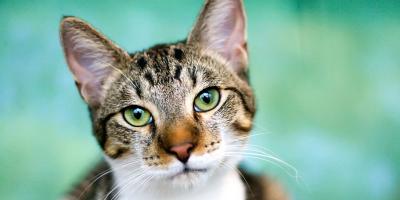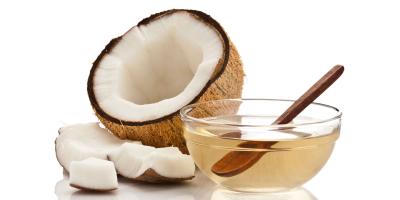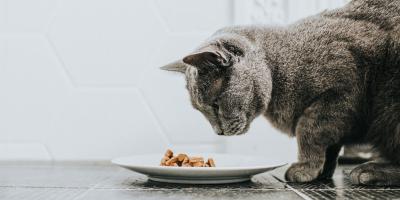
Cats drinking milk is typically the stuff of storybooks and movies — a child rescues a cat, and the first thing they do is feed it a shallow saucer of creamy milk. While events like this are adorable, you might wonder if cats really can drink milk. The answer is yes, they can — but it doesn't mean they should. Find out whether cats drink milk and why proper hydration for your kitty is so important.
Can Cats Drink Milk?
Despite popular belief, adult cats should not drink milk exclusively. Kittens, on the other hand, do drink milk when they're very young, but this is milk produced by their mother, not the kind that comes out of a carton. If it isn't possible for the kitten to drink her mother's milk, a specially designed kitten formula milk may be a good idea.
But in general, there's no reason to give traditional cow's milk to any kitten or cat. While it might seem like a harmless treat, giving your kitten or cat milk can actually cause digestive problems for your fur baby.
Kittens and Milk
When kittens are first born, they drink their mother's milk, and beginning around 4 weeks old, their mother starts weaning them off. Then, the weaning process is usually complete around 8-10 weeks old, which is when most kittens start eating solid food.
Kittens can successfully process their mother's milk because of an enzyme they're born with that allows them to break down lactose. However, as they grow, they lose that enzyme and, with it, the ability to process milk properly.
According to Purina Senior Nutritionist Jan Dempsey, "Cats generally lose their ability to digest the sugar found in milk after weaning because solid food takes its place, and they no longer need this ability."
Is Milk Bad for Cats?
Your cat may very well be drawn to a saucer of milk, generally because of its high fat content. In the wild, foods high in fat are considered rare and valuable, especially if a cat in the wild isn't eating every day.
However, since your cat is already eating a balanced diet, the extra fat in the milk isn't necessary for their health, no matter how attractive or adorable feeding them milk seems. Furthermore, too much fat can promote weight gain and potentially contribute to an upset stomach, which can result in symptoms such as loose stools.
Some pet shops may sell special milk for cats, which has reduced lactose. This may be fine to give your pet as a treat, but it's certainly not necessary.
Keeping Kittens Hydrated
Very young kittens only need their mother's milk for nutrition because it has everything they need to grow. If for some reason a kitten is an orphan, kitten formula can be fed to them, but normal cow's milk should not be given in this case because it doesn't contain the essential nutrients they need for development.
Between 4 and 8 weeks, kittens can start to eat a bit of solid food, too, along with their mother's milk. With the solid food, kittens should have access to fresh, clean water, and they'll likely partake in a little bit of all three — their mom's milk, solid food and water.
Keeping Cats Hydrated
Adult cats drink water as part of their healthy, balanced diet. How much they drink depends on whether they eat wet or dry food — dry kibble has less water, so cats who eat it exclusively typically drink more water — their age, their size and other factors your vet may mention.
If you decide to give your kitty special milk for cats, just be sure it's as a treat and not as a replacement for anything in her diet.
Why Do Adult Cats Like Milk?
Even though your cat is grown, she may still crave milk. Just like humans, cats may associate certain flavours and scents with positive memories, so milk may be like a comfort food to her because it might remind her of when she was a kitten and drank milk from her mother.
Although your cat shouldn't drink milk by itself for a meal, you can satisfy her cravings by feeding her foods such as Fancy Feast® Creamy Delights™, a line of gourmet cat food from Purina that's infused with real milk. Choose from textures such as creamy, classic pate or tender, grilled bites in a creamy sauce.
Feeding your kitty foods such as Creamy Delights cat food lets you satisfy her craving for milk and fat in a safe, healthy way and ensure she receives complete, balanced nutrition.
Can I Pour Milk on My Cat's Favourite Food?
No. Even though it might seem like a good idea, doing this can cause GI problems for your furry companion. Doing this might encourage your kitty to fill up on milk alone and not enough solid food to meet her nutritional needs.
Keep your cat happy and healthy by following our experts' advice. Explore our complete list of delectable cat food and treats to find ideal products for your kitty. Find more expert advice, cat diet tips and answers to all of your cat-related questions by browsing our resources library.
Related articles



